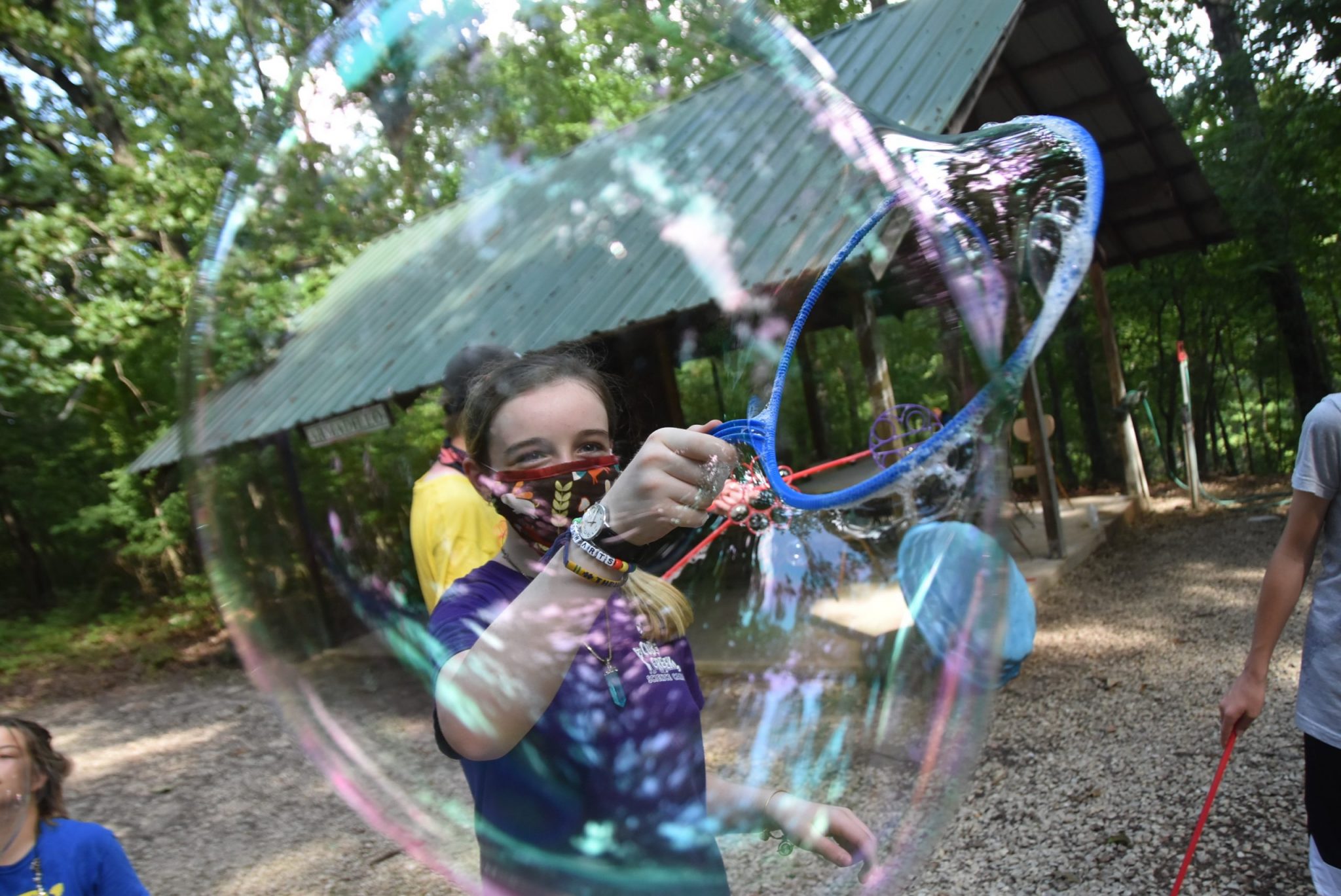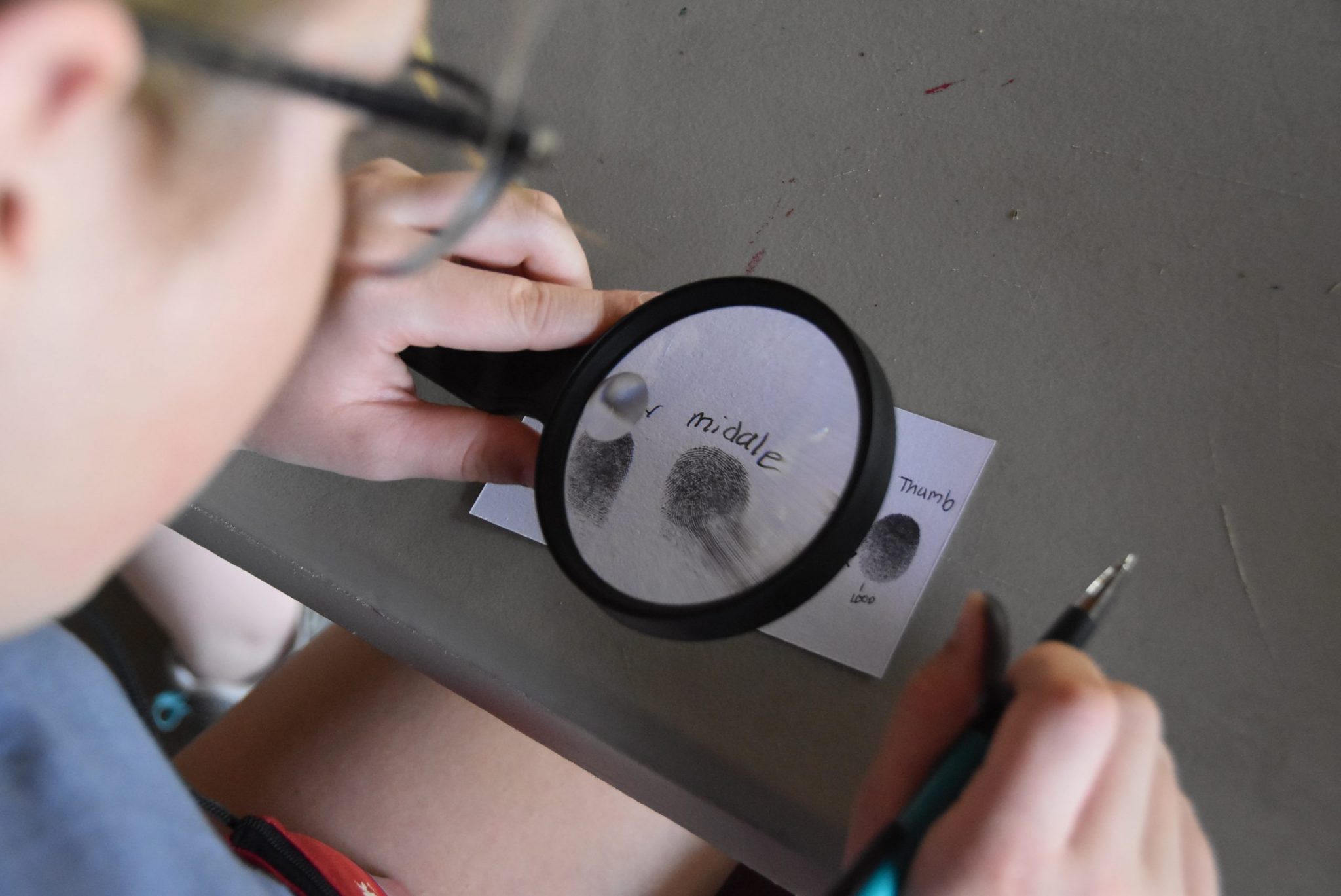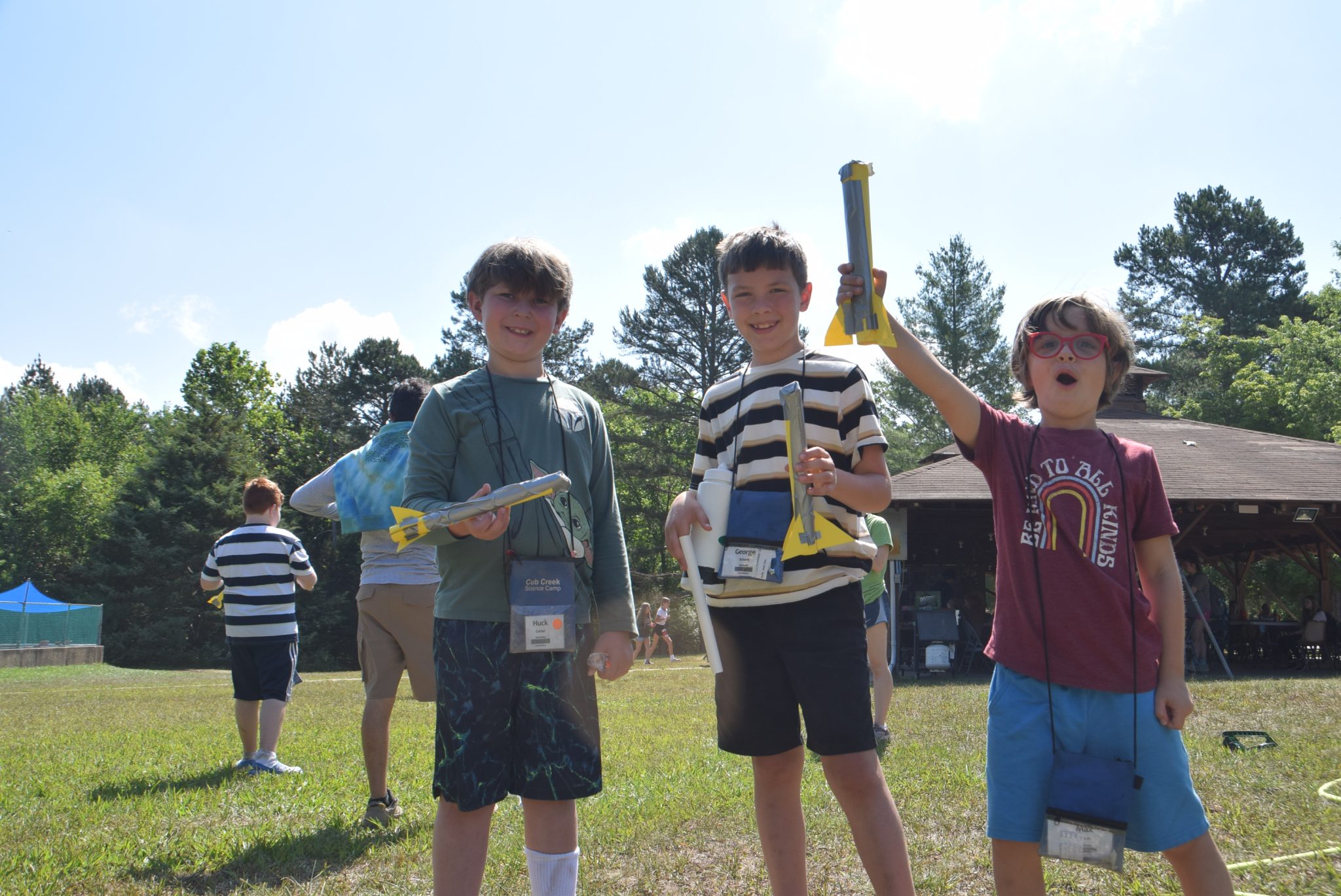Science at Camp
Science is in our name and it's our main game! At Cub Creek Science Camp, science is incorporated into everything we do! We encourage our campers to explore, experiment, ask questions, and try lots of new things. We engage their curiosity and give them opportunities to strengthen their problem solving skills. Campers learn by "doing" and have a whole lot of fun in the process. If you're looking for fun STEM activities for your camper this summer, you're in the right place!
Many of our campers come to camp loving science and are excited by things like physics and chemistry. Other campers come because they love animals, arts and crafts, or other activities offered at Cub Creek. What all campers find out, is that science is everywhere! At Cub Creek Science Camp, we believe learning is fun and especially when kids are given the opportunity to investigate their passions. We want campers to realize that being passionate about science is nothing to hide! People have done amazing things with their passions in the hard sciences and animal science. We want our campers to go on and do great things, too!
Classes
Courses
Look below for a list of our Science activities.
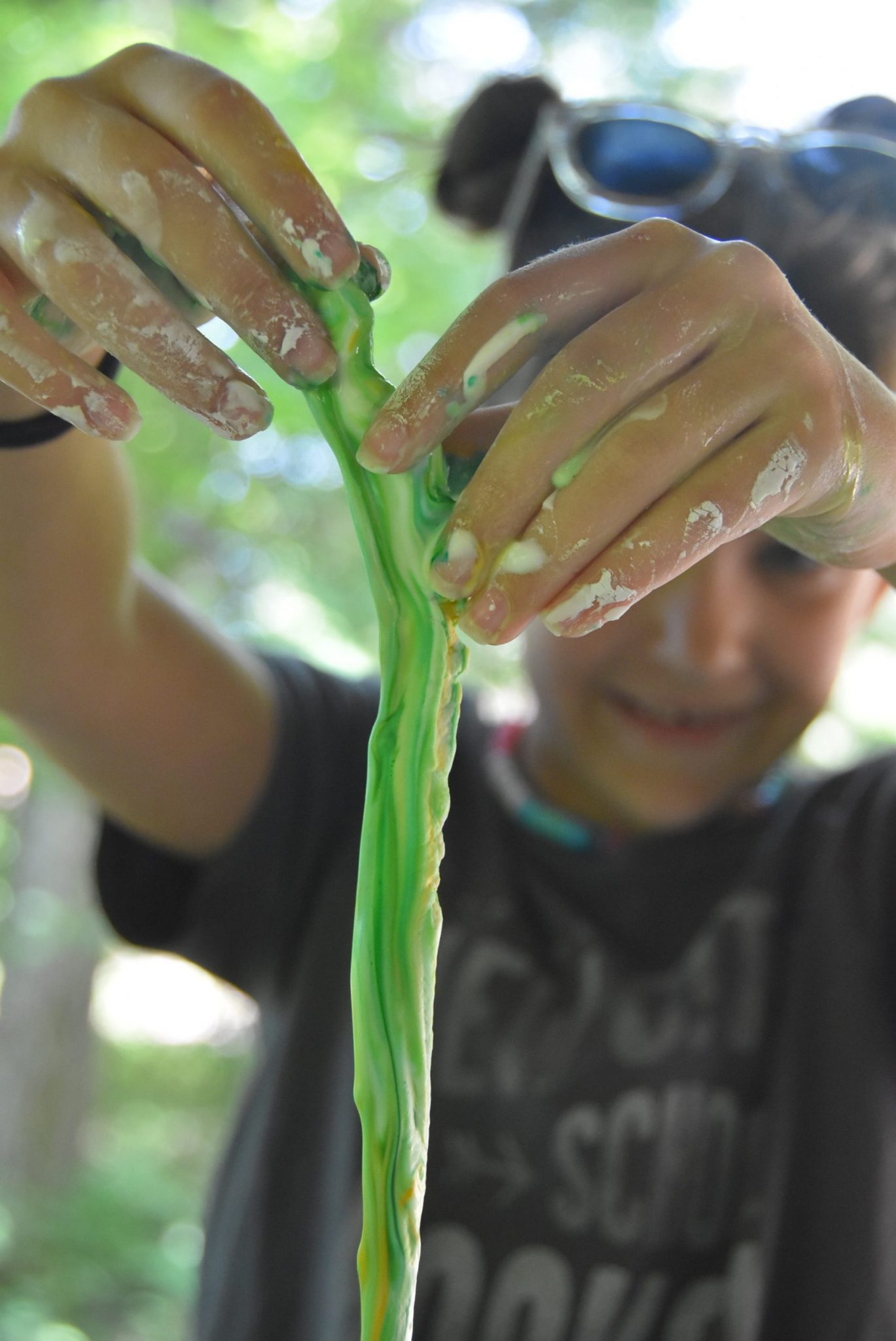
Chemistry
Love mixing things up? Get ready to explore cool chemistry experiments that bubble, fizz, and explode with fun!
Giant Bubbles - Create the biggest bubbles ever while learning how they work and why they shine with colors!
Oobleck - Is it a liquid? Is it a solid? Make Oobleck and watch it change right before your eyes!
Flubber - Whip up squishy, bouncy flubber and explore how materials stick together in fun ways.
Invisible Ink - Write secret messages with special ink that disappears and reappears like magic, while learning the science behind acids and bases, mixtures and solutions.
Elephant Toothpaste - Create a massive, foamy eruption that’s big enough for an elephant!

Crime Science
Want to be a real detective? In this course, you’ll learn how to solve mysteries by testing fingerprints, finding clues, and working with your team to crack the case!
Fingerprints - Think you can leave no trace? Learn how to capture fingerprints and footprints to catch the culprit!
Tiny Clues, Big Breaks - Can tiny clues solve a big mystery? Find out how small things like hair and fibers can crack the case wide open!
Crack the Code - Unlock the secrets of handwriting and crack secret codes like a real detective!
Blood Basics - Get messy and learn all about blood—its types, patterns, and how to make fake blood for experiments!
Solve the Crime - The clock is ticking! Use everything you’ve learned to solve a thrilling mystery before it’s too late!
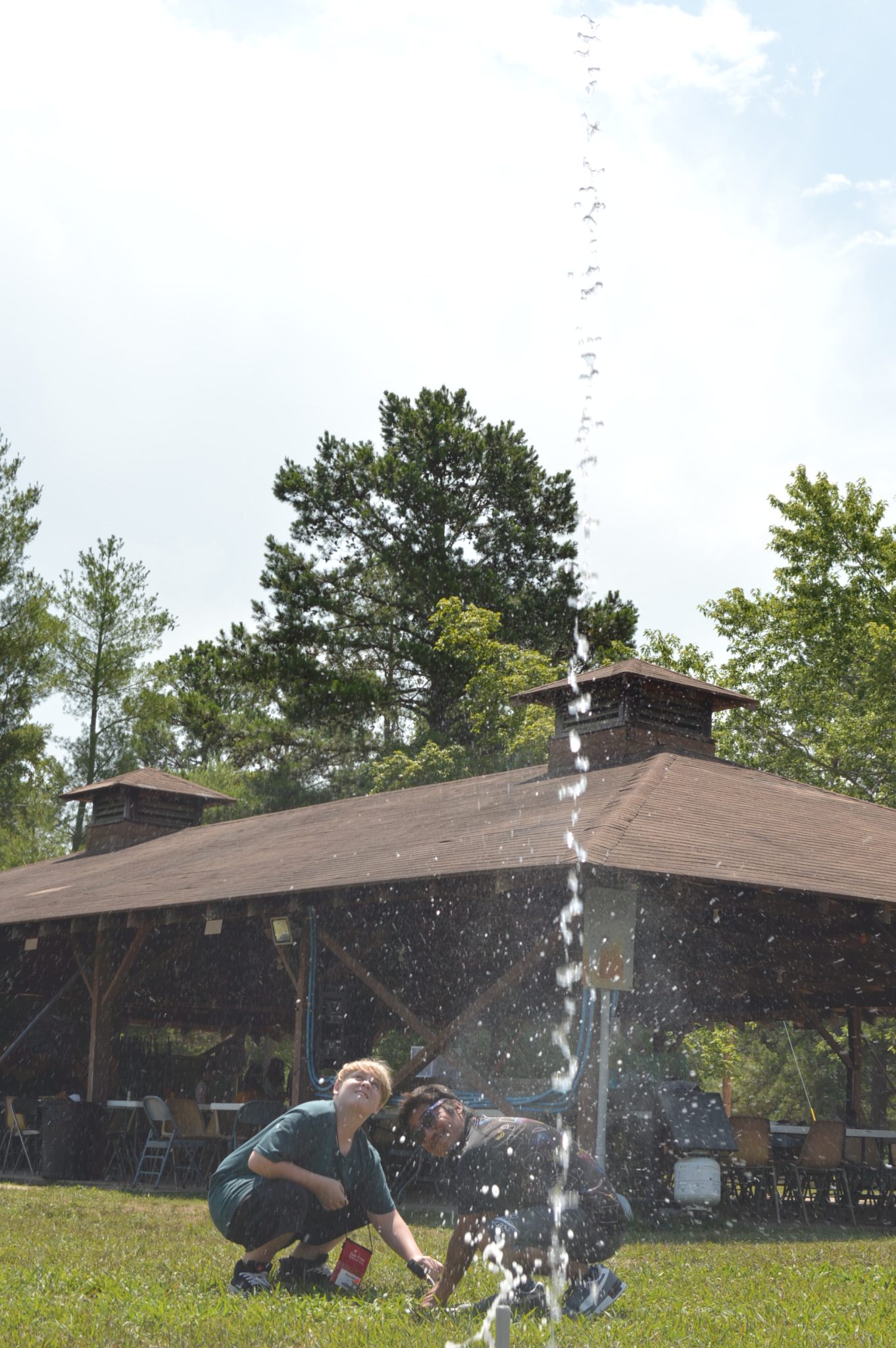
Physics: Race Cars and Rockets *NEW COURSE*
Zoom into action by building and racing rockets and cars while learning how things move!
Propulsion 101 - Blast off into learning about how things move with rockets, cars, and more!
Slingshots - Take aim and launch projectiles to hit fun targets!
Race Cars - Build and race RC cars through wild tracks filled with jumps and turns!
Air Rockets - Design and launch paper rockets high into the sky!
Water Rockets - Make awesome bottle rockets and watch them soar with water power!
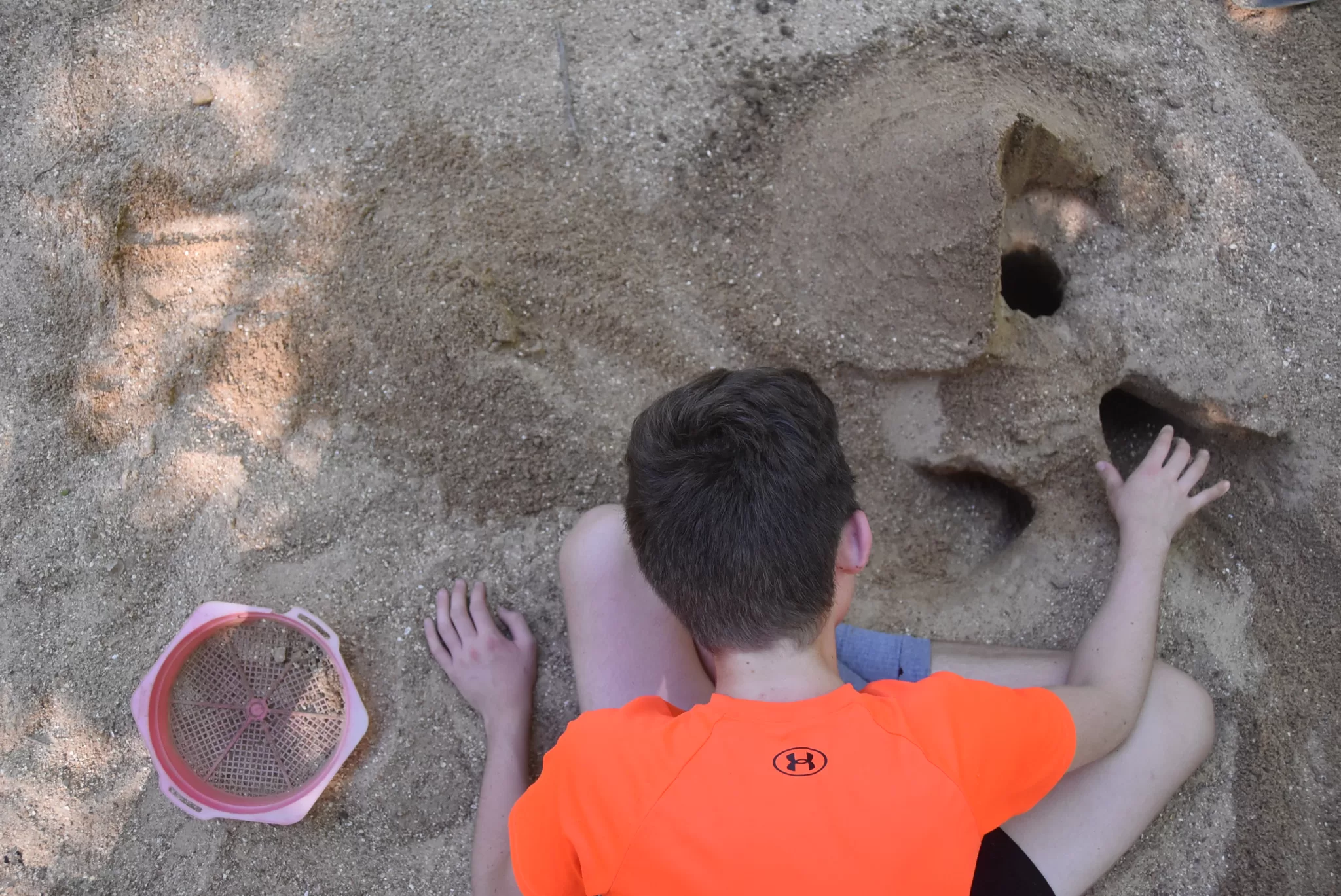
Construction Engineering *NEW COURSE*
Get your hands dirty as you build roads, tunnels, and mini cities using real construction equipment!
Excavating 101 - Hop into the driver’s seat and dig up hidden treasures with a real excavator!
Dirt Track Construction - Build awesome dirt tracks and test them out with speedy RC cars!
Urban Development - Plan and build your own mini city with roads, buildings, and more!
Dam Design - Can you stop the flood? Build a dam to keep your city safe!
Demolition Day - Smash it down and get ready for a fresh start next week.
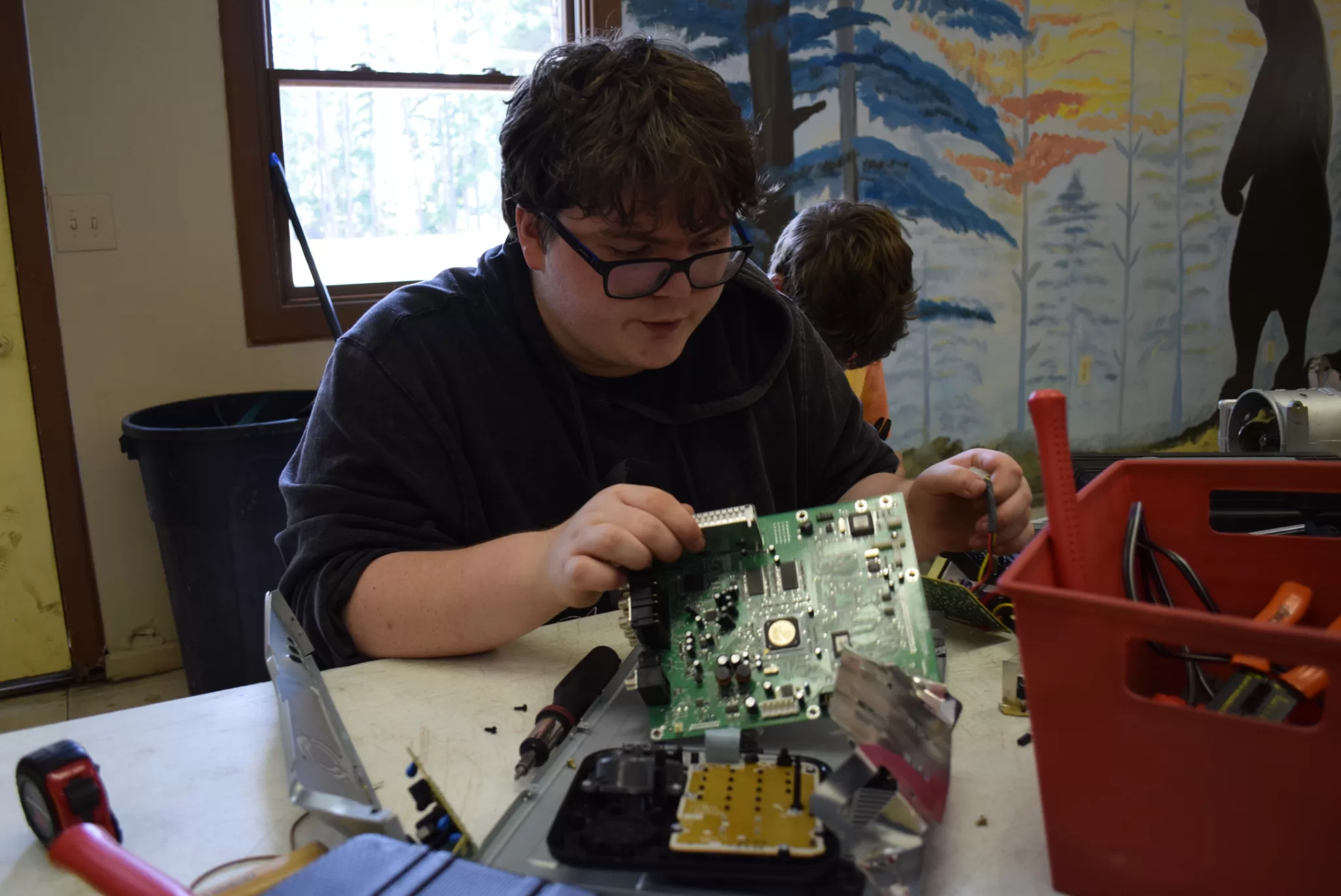
Tinker Lab Extreme **Senior Only** *NEW COURSE*
Get hands-on with the gadgets and gizmos that power everyday life in this exciting course designed for older campers. From fixing cars to cracking open appliances, they’ll gain real-world skills while having a blast! Perfect for curious minds who love to take things apart, explore how they work, and gain essential life skills.
Car Care 101: Stay Ahead of the Dashboard! - No more surprises on the road! Campers will master checking tire pressure and oil levels—staying one step ahead of that dreaded check engine light.
Gadget Deconstruction: What Makes it Tick - Blenders, radios, and more—campers will take apart common household devices to uncover the hidden mechanics inside.
Power Up: The Secrets of Electrical Wiring - Electricity isn’t magic—it’s science! Campers will explore circuits and even wire simple household items themselves.
Cool Science: Inside the AC Unit - How does an air conditioner keep things chill? Campers will dive into the fascinating inner workings of this summer essential.
Fix-It Challenge: Home Repair Showdown- Put those new skills to the test! Campers will tackle real-life home repair challenges and level up their DIY confidence.
Did you think that was it? We have plenty of other classes and courses offered in science, adventure, arts & crafts, nature and even more! Click the button to your right to explore more.
